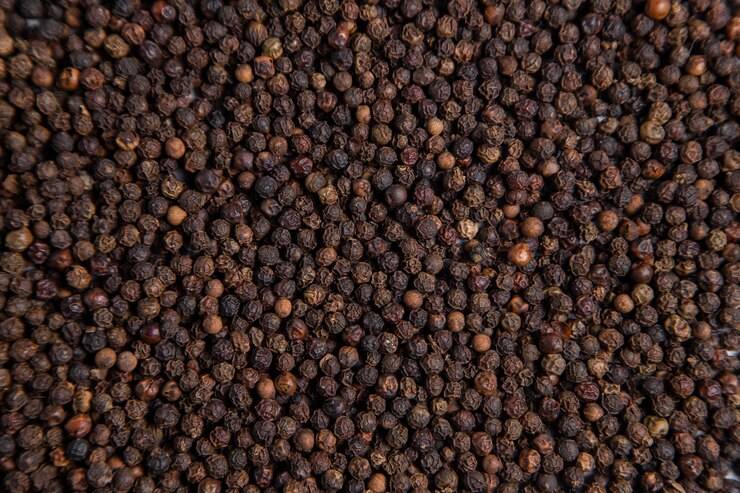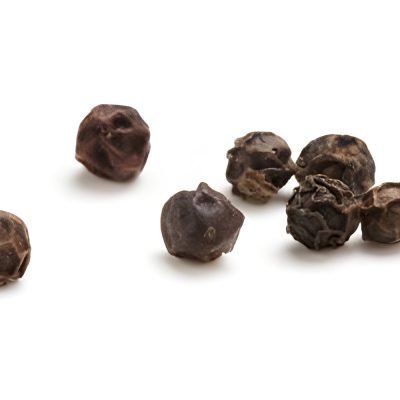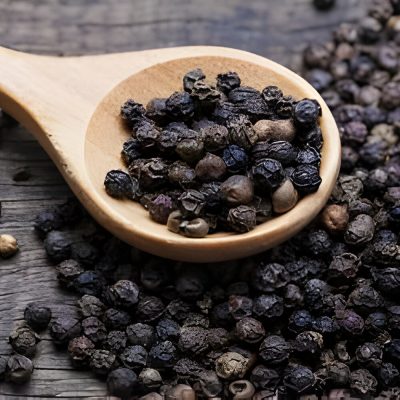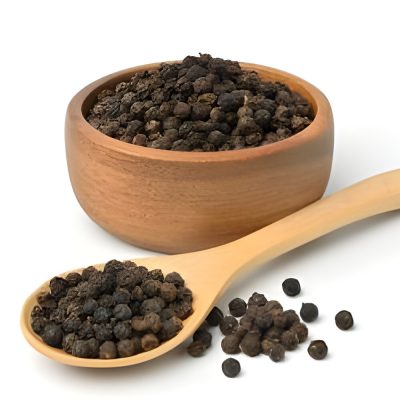Our Exclusive Items
Black Pepper




Black Pepper is a spice made from the fruit of the Piper nigrum plant. The fruit, known as a peppercorn, is usually dried and used as a spice and seasoning. Black pepper is native to the Malabar Coast of India and is one of the most common spices added to cuisines around the world. Its spiciness is due to the chemical compound piperine.
White Pepper, on the other hand, is also produced from the dried fruit of the Piper nigrum plant. However, it is usually milder than black pepper, with less complex flavor. White pepper is made from fully ripe pepper berries. They are soaked in water for about 10 days, leading to fermentation. Then their skins are removed, which also removes some of the hot piperine compound.
Patel Trading Co LLC is a prestigious trading company specializing in the business of black and white pepper. Since our establishment in 2011, we have been committed to providing our customers with top-quality pepper. Our pepper is sourced from some of the world’s leading pepper-producing countries, including Brazil and Madagascar.
Our dedication to quality and customer satisfaction has positioned us as a trusted partner for businesses in need of pepper. Our deep understanding of the pepper market allows us to offer competitive prices and ensure a consistent supply of this essential spice.
At Patel Trading Co LLC, we believe in fostering long-term relationships with our suppliers and customers, built on mutual trust and respect. We are proud of our track record in the pepper trading industry and look forward to continuing to serve our customers with the same dedication and integrity.
Black pepper, often referred to as the “king of spices,” is one of the most widely used and versatile spices in the world. It is obtained from the dried berries of the Piper nigrum plant and has a pungent, spicy flavor with earthy undertones. Beyond its culinary uses, black pepper also offers several potential health benefits. Here’s a breakdown:
Rich in Antioxidants: Black pepper contains potent antioxidants, such as piperine, which help neutralize harmful free radicals in the body. These antioxidants may protect cells from damage and reduce the risk of chronic diseases like cancer, heart disease, and neurodegenerative disorders.
Anti-Inflammatory Properties: Piperine, the active compound in black pepper, has been shown to have anti-inflammatory effects. Regular consumption of black pepper may help reduce inflammation in the body, which is associated with various health conditions, including arthritis, asthma, and inflammatory bowel disease.
Digestive Health: Black pepper stimulates the secretion of digestive enzymes in the pancreas and intestines, aiding in the digestion and absorption of nutrients. It may help relieve symptoms of indigestion, bloating, gas, and constipation by promoting healthy digestion and bowel movements.
Enhanced Nutrient Absorption: Piperine has been shown to enhance the absorption of nutrients from other foods and supplements. Consuming black pepper with meals or incorporating it into recipes may improve the bioavailability of essential nutrients like vitamins and minerals, including iron, calcium, and selenium.
Weight Management: Some research suggests that black pepper may help support weight loss and metabolic health. Piperine has been shown to increase metabolism, reduce fat accumulation, and suppress appetite, potentially aiding in weight management efforts when combined with a healthy diet and regular exercise.
Brain Health: Piperine may have neuroprotective effects and improve cognitive function. It may help enhance memory, attention, and learning by increasing the production of certain neurotransmitters in the brain. Additionally, black pepper’s anti-inflammatory properties may help protect against age-related cognitive decline and neurodegenerative diseases like Alzheimer’s.
Respiratory Health: Black pepper has been used in traditional medicine to alleviate respiratory symptoms such as coughs, congestion, and asthma. Its expectorant properties may help loosen mucus and clear airways, making it easier to breathe.
Antimicrobial Properties: Black pepper exhibits antimicrobial properties against certain bacteria and fungi. Including black pepper in your diet may help support immune function and protect against infections.
Heart Health: Preliminary studies suggest that piperine may have beneficial effects on heart health by reducing cholesterol levels and improving blood vessel function. However, more research is needed to fully understand its impact on cardiovascular health.
Versatile Culinary Uses: Black pepper is a staple spice used in a wide variety of savory dishes, including meats, poultry, seafood, vegetables, soups, stews, sauces, and marinades. It adds depth of flavor, heat, and aroma to recipes, enhancing their overall taste and appeal.
Product List
Cloves
This is a short description elaborating the service you have mentioned above.




Kitchen
This is a short description elaborating the service you have mentioned above.




Office Space
This is a short description elaborating the service you have mentioned above.





Bedroom
This is a short description elaborating the service you have mentioned above.





Living Room
This is a short description elaborating the service you have mentioned above.





Kitchen
This is a short description elaborating the service you have mentioned above.





Office Space
This is a short description elaborating the service you have mentioned above.





Bedroom
This is a short description elaborating the service you have mentioned above.




